
The Conversation Weekly
The Conversation
The world explained by experts
- 30 minutes 8 secondsHow close are quantum computers to being really useful?
Quantum computers have the potential to solve big scientific problems that are beyond the reach of today’s most powerful supercomputers, such as discovering new antibiotics or developing new materials. But to achieve these breakthroughs, quantum computers will need to perform better than today’s best classical computers at solving real-world problems. And they’re not quite there yet. So what is still holding quantum computing back from becoming useful?
We speak to quantum computing expert Daniel Lidar at the University of Southern California in the US about what problems scientists are still wrestling with when it comes to scaling up quantum computing, and how close they are to overcoming them.
This episode was written and produced by Gemma Ware and Katie Flood with production assistance from Mend Mariwany and sound design by Michelle Macklem. Our theme music is by Neeta Sarl. Full credits for this episode are available. Sign up here for a free daily newsletter from The Conversation.
If you like the show, please consider donating to The Conversation, which is an independent, not-for-profit news organisation. And please do rate and review the show wherever you listen.
Further reading:
- What is quantum advantage? A quantum computing scientist explains an approaching milestone marking the arrival of extremely powerful computers
- We’re getting closer to having practical quantum computers – here’s what they will be used for
- Quantum computers are like kaleidoscopes − why unusual metaphors help illustrate science and technology
Hosted on Acast. See acast.com/privacy for more information.
30 January 2025, 10:30 am - 23 minutes 57 secondsA wildfire warning from California's Ice Age past
Firefighters in Los Angeles continue to battle devastating wildfires that have killed at least 27 people and left thousands of homes destroyed. Today, we’re revisiting an interview we ran in late 2023 with Emily Lindsey, a paleoecologist who works at the La Brea tar pits archaeological site in Los Angeles, about a wildfire warning from southern California’s ice age history.
The interview originally aired in November 2023. This episode was written and produced by Katie Flood. Sound design was by Eloise Stevens and Michelle Macklem. Full credits for this episode are available. Sign up here for a free daily newsletter from The Conversation.
If you like the show, please consider donating to The Conversation, which is an independent, not-for-profit news organisation. And please do rate and review the show wherever you listen.
Further reading:
- Human use of fire has produced an era of uncontrolled burning: Welcome to the Pyrocene
- A changing climate, growing human populations and widespread fires contributed to the last major extinction event − can we prevent another?
- How Santa Ana winds fueled the deadly fires in Southern California
Hosted on Acast. See acast.com/privacy for more information.
23 January 2025, 10:36 am - 32 minutes 24 secondsSilicon Valley’s bet on a future of AI-enabled warfare
From Gaza to Ukraine, today’s war zones are being used as testing grounds for new systems driven by artificial intelligence. Billions of dollars are now being pumped into AI weapons technology, much of it from Silicon Valley venture capitalists.
In this episode, we speak to Elke Schwarz, a reader in political theory at Queen Mary University of London in the UK who studies the ethics of autonomous weapons systems, about what this influx of new investment means for the future of warfare.
This episode was written and produced by Mend Mariwany and Gemma Ware with sound design by Michelle Macklem. Our theme music is by Neeta Sarl. Full credits for this episode are available. Sign up here for a free daily newsletter from The Conversation.
If you like the show, please consider donating to The Conversation, which is an independent, not-for-profit news organisation. And please do rate and review the show wherever you listen.
Further reading:
- The Silicon Valley venture capitalists who want to ‘move fast and break things’ in the defence industry
- Gaza war: Israel using AI to identify human targets raising fears that innocents are being caught in the net
- War in Ukraine accelerates global drive toward killer robots
Hosted on Acast. See acast.com/privacy for more information.
16 January 2025, 10:20 am - 29 minutes 11 secondsHow the world fell in love with plastic without thinking through the consequences
Every year, 400 million tons of plastic are produced worldwide, and every year, approximately 57 million tons of plastic waste is created. And yet in November, the latest round of negotiations to agree the first legally binding international treaty on plastics pollution collapsed.
So what can we really do about the plastics pollution problem? In this episode we sat down with Mark Miodowonik, professor of materials and society at UCL in the UK, to understand the history of plastic, how it’s shaped our lives, and what can be done to make sure more plastic is recycled and less ends up polluting the planet.
This episode was written and produced by Katie Flood and Gemma Ware with sound design by Michelle Macklem. Our theme music is by Neeta Sarl. Full credits for this episode are available. Sign up here for a free daily newsletter from The Conversation.
If you like the show, please consider donating to The Conversation, which is an independent, not-for-profit news organisation. And please do rate and review the show wherever you listen.
Further reading:
- Can you trust companies that say their plastic products are recyclable? US regulators may crack down on deceptive claims
- The plastic recycling system is broken – here’s how we can fix it
- If plastic manufacturing goes up 10%, plastic pollution goes up 10% – and we’re set for a huge surge in production
- Time is running out for a treaty to end plastic pollution – here’s why it matters
Hosted on Acast. See acast.com/privacy for more information.
9 January 2025, 10:30 am - 37 minutes 56 secondsBrain implants, agentic AI and answers on dark matter: what to expect from science in 2025
In a special episode to start 2025, we’ve brought together three science editors from The Conversation’s editions around the world to discuss what to look out for in the world of science and technology in the coming year.
Host Gemma Ware is joined by Paul Rincon from The Conversation in the UK, Elsa Couderc from The Conversation in France and Signe Dean from The Conversation in Australia.
This episode was written and produced by Gemma Ware and Katie Flood with sound design by Michelle Macklem. Our theme music is by Neeta Sarl. Full credits for this episode are available. Sign up here for a free daily newsletter from The Conversation.
If you like the show, please consider donating to The Conversation, which is an independent, not-for-profit news organisation. And please do rate and review the show wherever you listen.
Further reading and listening
- Has Nasa found evidence of ancient life on Mars? An expert examines the latest discovery
- Several companies are testing brain implants – why is there so much attention swirling around Neuralink? Two professors unpack the ethical issues
- Nuclear fusion record broken – what will it take to start generating electricity? Podcast
- Quantum computers are like kaleidoscopes − why unusual metaphors help illustrate science and technology
Hosted on Acast. See acast.com/privacy for more information.
2 January 2025, 10:30 am - 26 minutes 5 secondsHow Zimbabwe reached the point of abolishing the death penalty
Zimbabwe is on the cusp of abolishing the death penalty after its Death Penalty Abolition Bill was approved by the senate on December 12. The bill is now sitting on the desk of Zimbabwe’s president, Emmerson Mnangagwa, a known opponent of the death penalty, waiting for his assent.
In this episode, we speak to two experts on the death penalty, Carolyn Hoyle and Parvais Jabbar from the University of Oxford's Death Penalty Research Unit, who explain how Zimbabwe got here and what abolition means for both the country, and the continent.
This episode was written and produced by Gemma Ware and Mend Mariwany with sound design by Michelle Macklem. Our theme music is by Neeta Sarl. Full credits for this episode are available. Sign up here for a free daily newsletter from The Conversation.
If you like the show, please consider donating to The Conversation, which is an independent, not-for-profit news organisation. And please do rate and review the show wherever you listen.
Further reading
- Zimbabwe’s likely to abolish the death penalty: how it got here and what it means for the continent
- Kenyan prisoners on death row weren’t deterred by the threat of the death penalty: new research findings
- Why the death penalty is losing favour in sub-Saharan Africa
Hosted on Acast. See acast.com/privacy for more information.
19 December 2024, 10:30 am - 27 minutes 41 secondsWhy distrust in powerful politicians is part of a functioning democracy
Surveys suggest that in many western democracies, political trust is at rock bottom. But is it really such a bad thing for people living in a democracy to distrust their government?
In this episode, we talk to political scientist Grant Duncan, visiting scholar in politics at City St George's, University of London, about why he thinks a certain level of distrust and scepticism of powerful politicians is actually healthy for democracy. And about how populists, like Donald Trump, manage to use people’s distrust in political elites to their advantage.
This episode was written and produced by Gemma Ware, Mend Mariwany and Katie Flood with sound design by Michelle Macklem. Our theme music is by Neeta Sarl. Full credits for this episode are available. Sign up here for a free daily newsletter from The Conversation.
If you like the show, please consider donating to The Conversation, which is an independent, not-for-profit news organisation. And please do rate and review the show wherever you listen.
Further reading
- Don’t trust politicians? That may not be such a bad thing
- Why people vote for politicians they know are liars
- Trusting societies are overall happier – a happiness expert explains why
Hosted on Acast. See acast.com/privacy for more information.
12 December 2024, 10:33 am - 26 minutes 42 secondsHow do animals understand death?
An orca that pulled along the corpse of its baby for 17 days. An opposum that plays dead to fool predators. And a chimpanzee that cleaned the teeth of its dead baby. Observations of behaviours like these suggest animals have a complex relationship with death.
In this week’s episode, we speak to Susana Monsó, an associate professor of philosophy at the National Distance Education University in Madrid, Spain, about the different ways animals understand death.
This episode was written and produced by Katie Flood with sound design by Michelle Macklem and our theme music is by Neeta Sarl. Full credits for this episode are available. Sign up here for a free daily newsletter from The Conversation.
If you like the show, please consider donating to The Conversation, which is an independent, not-for-profit news organisation. And please do rate and review the show wherever you listen.
Further reading
- Los animales entienden la muerte más de lo que se pensaba
- What the grieving mother orca tells us about how animals experience death
- Elephant calves have been found buried – what does that mean?
Hosted on Acast. See acast.com/privacy for more information.
5 December 2024, 10:30 am - 32 minutes 58 secondsThe story of one Amazon warehouse in the UK that pushed to unionise
The online retail giant Amazon is known for its resistance to unions. In this week’s episode, we tell the story of what happened at one warehouse in Coventry in the UK when its workers tried to gain official recognition for the GMB union, one of the country’s biggest labour unions.
We talk to Tom Vickers, a sociologist at Nottingham Trent University in the UK, who spent weeks observing workers’ efforts to unionise at the warehouse as part of a research secondment with the GMB. And John Logan, a professor of labor and employment Studies at San Francisco State University in the US, explains why some companies, many of them American, are so doggedly anti-union. The episode also includes an introduction from Sarah Reid, business and economy editor at The Conversation in the UK.
This episode was written and produced by Katie Flood with sound design by Michelle Macklem and our theme music is by Neeta Sarl. Full credits for this episode are available. Sign up here for a free daily newsletter from The Conversation.
If you like the show, please consider donating to The Conversation, which is an independent, not-for-profit news organisation. And please do rate and review the show wherever you listen.
Further reading:
- I spent months with Amazon workers in Coventry before they narrowly voted against unionising. This is what I learned
- Amazon still seems hell bent on turning workers into robots – here’s a better way forward
- Amazon, Starbucks and the sparking of a new American union movement
Hosted on Acast. See acast.com/privacy for more information.
28 November 2024, 10:30 am - 27 minutes 39 seconds50 years since the discovery of ancient hominin fossil Lucy in Ethiopia, calls grow to decolonize paleoanthropology
It's been 50 years since the American paleoanthropologist Donald Johanson discovered the fossil of ancient hominin 'Lucy' in the Afar region of Ethiopia. The find took the story of human evolution back beyond 3 million years for the first time. Yet, despite largely centring on the African continent as the "cradle of mankind", the narrative of hominin fossil discovery is striking for its lack of African scientists.
In this week's episode, Yohannes Haile-Selassie, director of the Institute of Human Origins at Arizona State University in the US, explains why the story of ancient human origins is so western-centric, and why he's calling for the decolonisation of paleoanthropology.
This episode was produced by Mend Mariwany with sound design by Michelle Macklem and our theme music is by Neeta Sarl. Full credits for this episode are available. Sign up here for a free daily newsletter from The Conversation.
If you like the show, please consider donating to The Conversation, which is an independent, not-for-profit news organisation. And please do rate and review the show wherever you listen.
Further reading:
- ‘Deep inside, something told me I had found the earliest human ancestor; I went numb’ – Yohannes Haile-Selassie on his lifetime quest to discover ancient humanity
- Lucy, discovered 50 years ago in Ethiopia, stood just 3.5 feet tall − but she still towers over our understanding of human origins
- Meet 3-million-year-old Lucy – she’ll tell you a lot about modern African heritage
Hosted on Acast. See acast.com/privacy for more information.
21 November 2024, 10:30 am - 25 minutes 34 secondsThe controversy over cod fishing in Canada
For generations, cod fishing was a way of life in Newfoundland and Labrador, the easternmost province in Canada. But in 1992, after cod stocks in the north Atlantic plummeted, the federal government imposed a moratorium on cod fishing. It was to last for 32 years until June 2024, when the government lifted the ban in a controversial decision.
In this episode we speak to Tyler Eddy, a research scientist in fisheries science at Memorial University of Newfoundland, to shed light on what’s happened. It's a story that offers a cautionary tale for those politicians trying to balance the complex demands of protecting ecosystems that also support substantial economies.
This episode was produced by Katie Flood and Gemma Ware. Sound design was by Michelle Macklem and our theme music is by Neeta Sarl. Full credits for this episode are available. Sign up here for a free daily newsletter from The Conversation.
If you like the show, please consider donating to The Conversation, which is an independent, not-for-profit news organisation. And please do rate and review the show wherever you listen.
Further reading:
- The federal government has lifted the moratorium on Northern cod fishing after 32 years
- The Atlantic: The driving force behind ocean circulation and our taste for cod
- Tiny oceanic plankton adapted to warming during the last ice age, but probably won’t survive future climate change – new study
Hosted on Acast. See acast.com/privacy for more information.
14 November 2024, 11:00 am - More Episodes? Get the App
Your feedback is valuable to us. Should you encounter any bugs, glitches, lack of functionality or other problems, please email us on [email protected] or join Moon.FM Telegram Group where you can talk directly to the dev team who are happy to answer any queries.
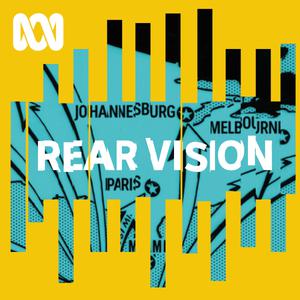 Rear Vision
Rear Vision
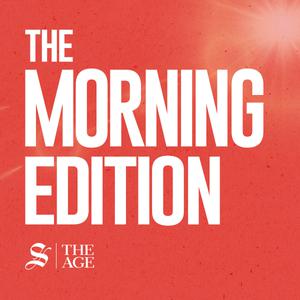 The Morning Edition
The Morning Edition
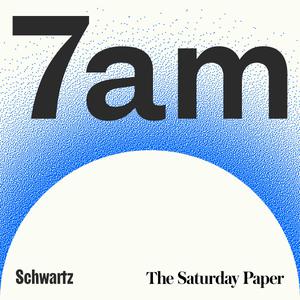 7am
7am
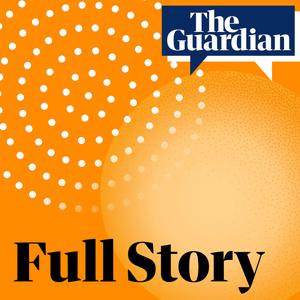 Full Story
Full Story
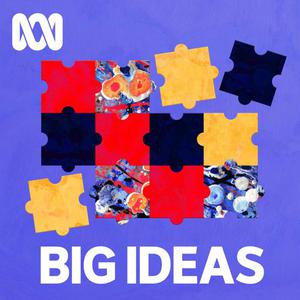 Big Ideas
Big Ideas
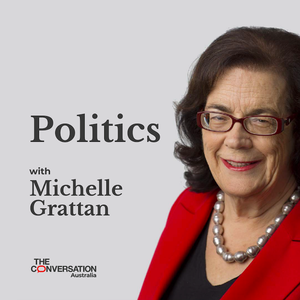 Politics with Michelle Grattan
Politics with Michelle Grattan